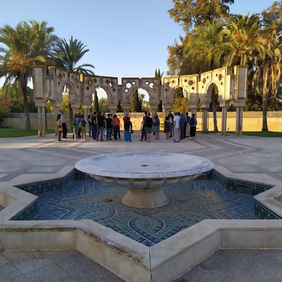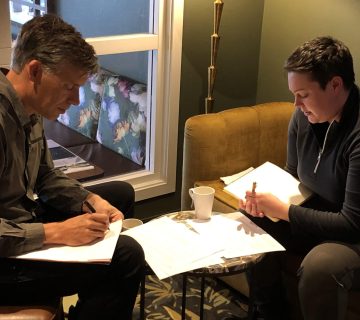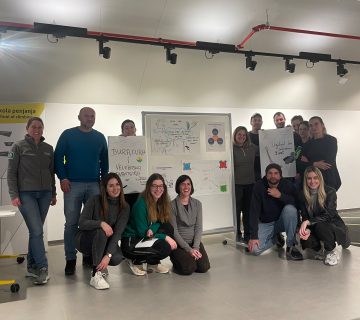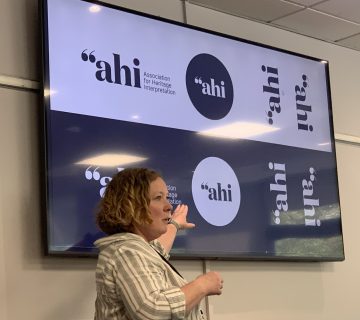Sustainable development, geotourism, geological risks and climate change were the main topics of discusion during the 15th European Geoparks Conference held in Seville, Spain. The event brought more than 400 managers and technicians from the European Geoparks Network together at the Morocco Pavillion, home of the Tres Culturas Foundation. Scientists, environmental educators and specialists in sustainable development also participated. The slogan for this year’s conference was Memory of Earth, future for people, focusing on the sustainable development of geoparks for inhabitants and protected nature areas.
The conference included thematic sessions, workshops, exhibits and study visits. As for the thematic sessions, they were divided according to their main theme: Aspiring geoparks; Education and communication in geoparks; Geohazards and climate change; Sustainable development and geotourism; and Geological heritage and research in geoparks. During the last day, four workshops took place and Interpret Europe actively participated with the workshop, A taster of interpretive skills for geoparks. IE was represented by Carla Silva, Country Coordinator Portugal, Nuria Mohedano, IE Tourism Coordinator, Darja Komar, Certified Interpretive Guide and Evarist March, Certified Interpretive Trainer.
The workshop offered space for inspiration, knowledge sharing and skill development through taster activities focused on IE’s approach to heritage interpretation, and showed how such skills can be used on real phenomena.
Along with explaining the basic principles of heritage interpretation, the workshop discussed questions such as how to engage people at geological sites, how to provide first-hand experiences and how the tools of interpretation can improve the quality of communication and positively influence the work of geoparks on education, conservation and tourism development.
Evarist March opened the workshop, showing geo-interpretation skills in action during an interpretive walk around the venue. A fresh and dynamic practical exercise in which participants connected with different rocks in different parts of the building, and curiosity was awakened. After that, Nuria Mohedano offered space for ‘deeper meanings’ through a piece of ethnography related to geology: a jar to drink water from a ferrouginous volcanic fountain in Puertollano, her hometown. This was a reminder of the need to make geopark visitors think about the meaning behind heritage and facilitate a meaningful exchange for them. Carla Silva delivered the game, Guess the heritage, to show how words and written texts can make a difference in connecting visitors to objects or places; it was important to show that intepretation is not only for guides, but also for panels and exhibitions. Darja Komar developed a practical exercise to explain the Rocks Cycle in a dynamic way, where the participants who volunteered to represent the rocks and processes will never forget how this cycle works.
An open discussion with all participants was the final part of the workshop about how to apply heritage interpretation to their current jobs or professions related to geoparks. Some of the ideas exchanged showed that people made a connection with what really matters during the practical exercises and agreed on the fact that geoparks need more heritage interpretation within deeper frames and values in order to reach the pursued objectives of UNESCO Global Geoparks.
Exploring, developing and celebrating the links between geological heritage and all other related aspects of such natural, cultural and intangible heritages, while reconnecting them with human society, will only be possible if heritage interpretation is a key part of geopark management.
Nuria Mohedano is IE’s Tourism Coordinator. She is based in Puertolllano, Castilla-La Mancha, Spain and specialises in Sustainble Tourism Management at Syddansk Universitet in Denmark. She currently combines teaching in non-formal education tourism related courses and freelance work as a sustainable tourism marketing consultant. She can be contacted at: nuria.mohedano@interpret-europe.net.
Carla Silva is IE’s Country Coordinator Portugal. She is based in Pico Island, Azores Archipelago, Portugal. She is a biology and geology teacher working for the Azores Regional Government, in the Services of Nature Conservation and Environmental Awareness, where she collaborates on educational programmes for students, municipalities and tourism companies, among other projects. She can be contacted at: carla.silva@interpret-europe.net or carla.sg.silva@azores.gov.pt.




